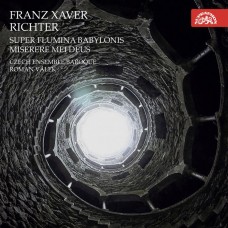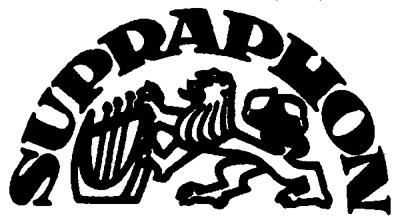|
F.X.李希特: 在巴比倫河畔 / 求主垂憐
羅曼·瓦萊克 指揮
捷克室內巴洛克樂團
Roman Valek
Czech Ensemble Baroque Orchestra & Choir
in France, the spring of 1769 was a true watershed in his career. When, two years previously,
he joined a competition held by Concert Spirituel, a major French music institution, he
evidently had in mind being employed as a musician in Paris. The contestants' task was to
compose a "motet à grand choeur", encompassing a sequence of arias, ensembles and
choruses, set to the Latin text of Psalm 136, Super flumina Babylonis. Although Richter failed
to win the competition, his work arouse great interest and on 28 March 1769 it premiered
within the Concert Spirituel series at the Tuileries Palace, at the largest music venue in Paris
at the time. Less than a month later, Richter was appointed the Maitre de Chapelle de Notre
Dame de Strasbourg. The motet Super flumina Babylonis undoubtedly played a significant
role in his being named to the prestigious post. Over the first years he spent in Strasbourg
(1770-73), Richter wrote three settings of Psalm 50, Miserere mei Deus, intended for the
night liturgy of Tenebrae, a religious service held during the three days preceding Easter. In
addition to Super flumina Babylonis, the present album features the third setting of the
Miserere, in F minor, in a premiere recording. In their fourth disc of Richter's music, Czech
Ensemble Baroque discover the yet to be mapped legacy of the distinguished 18th-century
composer.
FRANZ XAVER RICHTER (1709-1789)
Super flumina Babylonis
Psalmus 136 à 12 voci (1768)
1 I. Allegro spiritoso
2 II. Andante
3 III. Presto
4 IV. Coro. Andante poco – Super flumina Babylonis
5 V. Coro. Alla capella – In salicibus in medio ejus
6 VI. Aria. Allegro comodo (tenore) – Quia illic interrogaverunt nos
7 VII. Aria. Allegretto (soprano) – Quomodo cantabimus?
8 VIII. Duetto. A tempo giusto (soprano, alto) – Adhaereat lingua mea
9 IX. Aria. Maestoso con spirito (basso) – Memor esto Domine
10 X. Coro. Fugato e spiritoso. Largo – Filia Babylonis misera
Miserere
à 10 voci per il Venerdi Santo (1770-73)
11 I. Coro. Lento – Miserere mei Deus
12 II. Coro. Andante – Amplius lava me
13 III. Coro. A capella – Asperges me
14 IV. Aria. Allegretto (soprano) – Auditui meo
15 V. Coro. A capella – Cor mundum
16 VI. Aria. Andante grazioso (alto) – Ne projicias me
17 VII. Coro. Moderato – Redde mihi
18 VIII. Aria (basso) – Domine, labia mea aperies
19 IX. Aria. Con brio (tenore) – Quoniam si voluisses
20 X. Coro. Grave – Sacrificium Deo
21 XI. Duetto. Allegretto grazioso (soprano, alto) – Benigne fac Domine
22 XII. Coro. Adagio – Tunc acceptabis
23 XIII. Coro. Alla capella – Tunc imponent |
|



